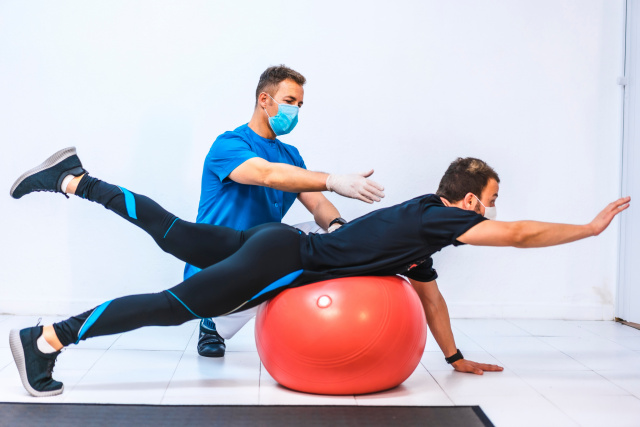ILCT allied health professionals can help you decide what modifications or equipment is needed for living independently in the community, tailoring advice and information to your situation. Solutions may involve changing a technique, using a service or technology, or making adaptations to the surrounding environment. Advice can be provided on equipment for personal care, mobility, seating, communication, memory, low vision and much more.
Occupational therapy
An Occupational Therapist [OT] assesses a person's functional ability in their environment to maintain independence and teaching them different ways to do a task or use equipment and technology to make tasks easier to complete.
Speech therapy
A Speech and Language Pathologist [SLP] assists with speech and swallowing difficulties, communication difficulties for understanding, expression (word/sentence production), social interaction and understanding body language. They work with people who have throat conditions, strokes or brain disorders and neurological conditions, such as motor neurone disease or Parkinson’s disease.
Physiotherapy
A physiotherapist assesses mobility and stability to assist a client improve their range of movement through gentle exercise. They also work with lifting and transferring clients, general walking and assisting people to get in and out of chairs, beds, and cars.
Allied Health Assistants
An Allied Health Assistant is trained to work under the direction of an allied health professional, such as an Occupational Therapists, Speech Pathologist or Physiotherapist. They can perform a range of tasks such as supporting the delivery of a therapeutic programme, assisting with equipment set up or delivery, or perhaps other tasks that may not need the direct input of an allied health professional. This can result in a more cost effective solution for you and means that the service can be more flexible to your needs. Allied Health Assistants can also deliver rehabilitation based programmes, such as “Rise”, our NDIS capacity building programme.
Please let us know if an interpreter is required when an appointment is made.
